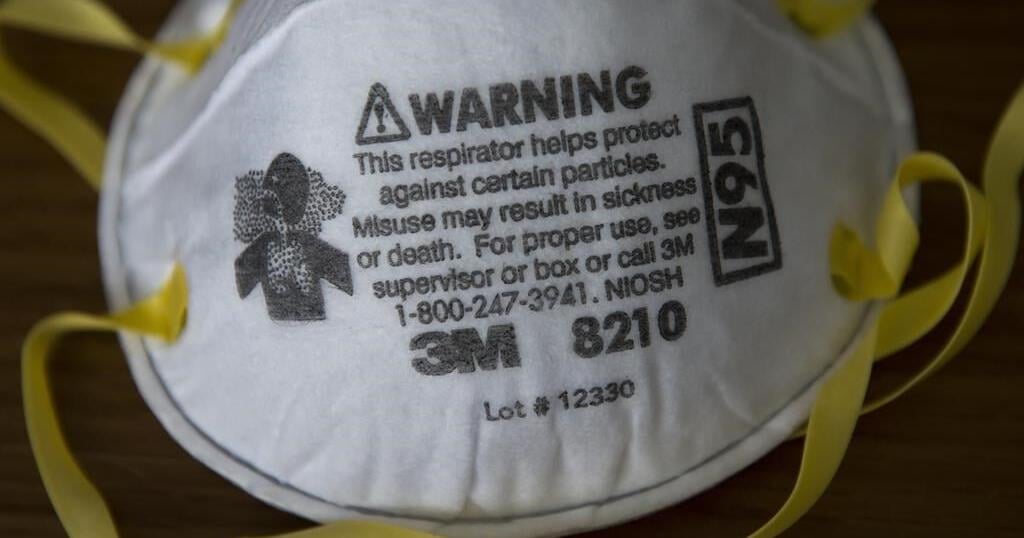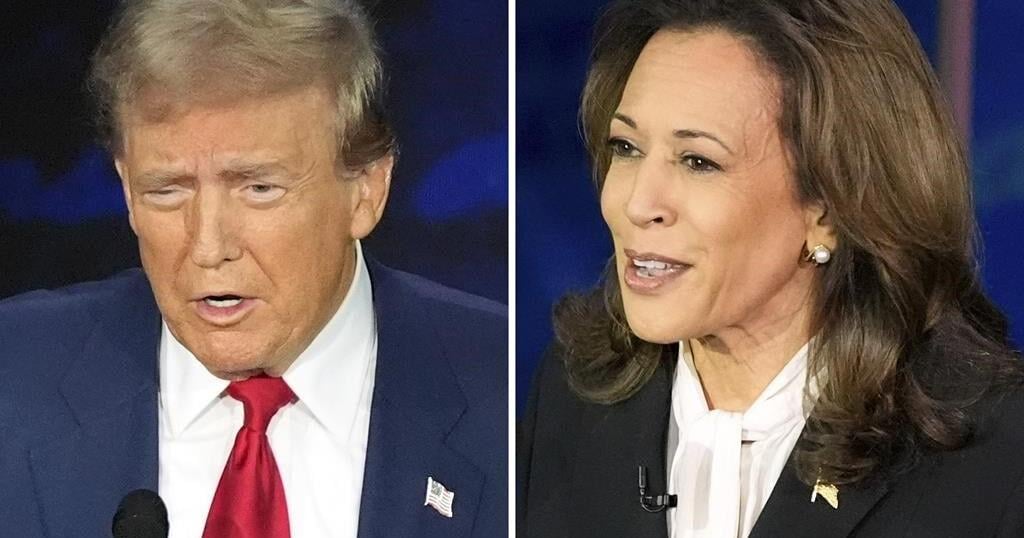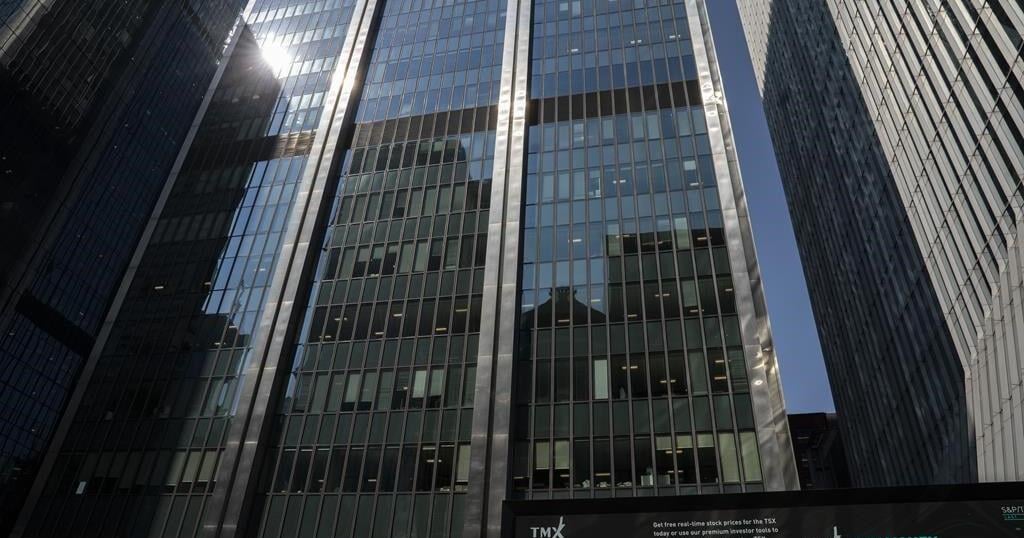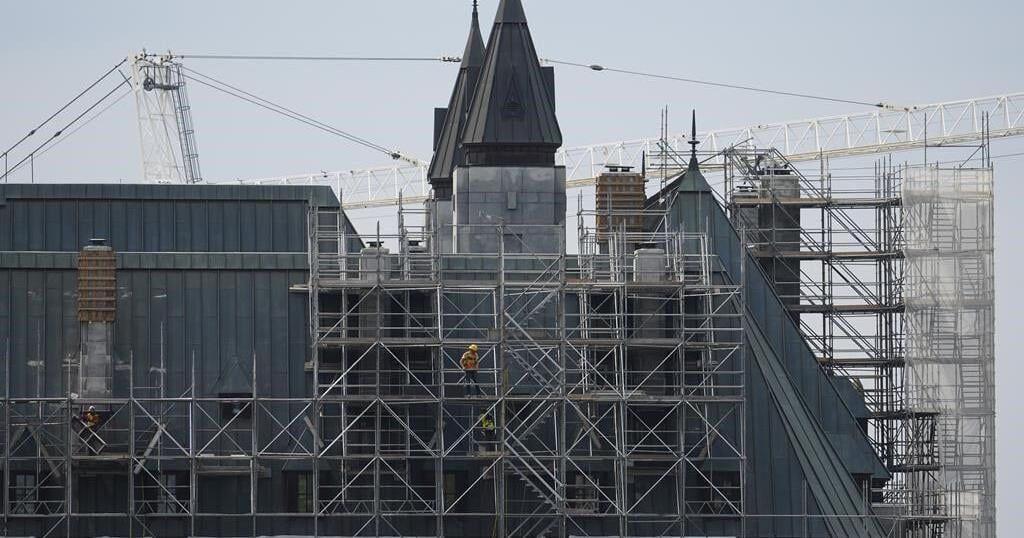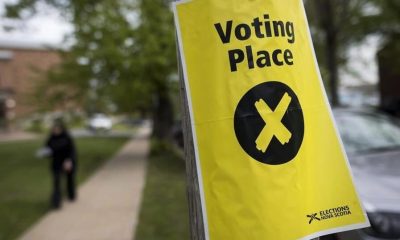WASHINGTON (AP) — Kamala Harris ‘ campaign is actively warning business leaders that Donald Trump has a pattern of disregard for democracy and the rule of law that would threaten U.S. economic growth — a closing argument designed to show the possible consequences for companies and workers if he returns to the White House.
It’s a position that Trump’s team rejects as they tell voters that prices will be lower and growth stronger than ever before if he wins Tuesday’s election. As a billionaire who made his name in real estate, the former president has argued for higher tariffs to bring more factories into the United States and tax cuts for the wealthy and corporations on the premise that will lead to more investment.
The rival positions get at a fundamental distinction between the two candidates on how to guide the world’s largest economy: Harris’ team is arguing that the rule of law creates the certainty that can make markets and workers thrive, while Trump is arguing that tariff increases and tax cuts are the keys for growth.
Gene Sperling, who has guided three Democratic presidents on economic policy and is now advising the Harris campaign, has made what he describes as a “common sense” case to financiers and others about the dangers of a second Trump administration.
“A president who targets people, targets CEOs, targets companies, targets journalists and targets opposition could have a devastating impact on the investment confidence that has been robust for the past four years but also part of America’s strength since its founding,” said Sperling.
But the billionaire hedge fund investor John Paulson, a Trump supporter who sees himself as a possible treasury secretary, pushes back against the Harris campaign’s criticisms by saying the world was more stable under Trump and inflation was lower.
“It’s completely false,” he said of Sperling’s argument about the rule of law being at risk. “When people make these claims, they’re totally spurious. They’re not grounded in reality. Trump is a brilliant businessman. He wants to bring down wasteful spending and encourage growth.”
Trump has derided his opponent’s handling of the economy as “stupid” and claimed the stock market will crash if he loses the election, although the S&P 500 index of stocks has increased roughly 50% during President Joe Biden ‘s term.
“We will give our companies the lowest taxes, the lowest energy cost, the lowest regulatory burdens, and free access to the best and biggest market on the planet,” Trump said at a rally Tuesday in Allentown, Pennsylvania. “The problem is, if we had more of these idiots running our country, you won’t have a big and best market anymore because we’re a nation in decline.”
The Harris team’s push involves connecting the Jan. 6, 2021 insurrection at the U.S. Capitol with Trump’s history of using the bully pulpit to attack the Federal Reserve as well as companies such as Amazon, Merck, Comcast, John Deere and Toyota. Their argument is that companies are less likely to make long-term investments if democratic values are under attack and election results denied.
In addition to Sperling, corporate executives have been hearing from Robert Rubin, the former treasury secretary; Kenneth Chenault, the former CEO of American Express; and Brian Deese, the former National Economic Council director for Biden.
One person familiar with the conversations said that the representatives of the Harris campaign are not having to push hard on this issue. Seemingly apolitical CEOs are privately raising this issue as their central concern about a Trump presidency, with the person insisting on anonymity to describe the private conversations with business leaders who want to stay out of the electoral spotlight.
But Vanessa Williamson, a senior fellow in governance at the Brookings Institution, said that the Harris campaign has somewhat underplayed the risks given the possible hazards.
“By and large, Americans have been able to take the basic rule of law for granted,” Williamson said. “The kind of rampant cronyism and fraud that is endemic in some other countries has really been unimaginable here — and that’s a great thing, of course. But it also makes it difficult for people to conceive of just how important government is for the functioning of markets.”
Both campaigns are vying for support from the business community. Trump has the backing of billionaire Elon Musk, the owner of Tesla, SpaceX and X, the social media platform previously known as Twitter. Billionaires such as Microsoft founder Bill Gates and billionaire entrepreneur Mark Cuban are backing Harris.
Many of the disputes have centered on policy differences. Trump has said that the higher corporate tax rates favored by Harris would deter investment, while the Harris team has attacked his plans to remove Biden-era incentives for building computer chip, electric vehicle and other advanced factories as costing the country factory jobs.
But the argument about the importance of democratic values picked up credibility in October after the Nobel memorial prize in economics was awarded to three economists, Daron Acemoglu, Simon Johnson and James Robinson, who showed that social institutions and the rule of law are critical for economic growth.
Acemoglu was among the 23 Nobel prize-winning economists who signed a letter saying Trump’s economic plans would “lead to higher prices, larger deficits, and greater inequality.”
The letter said: “Among the most important determinants of economic success are the rule of law and economic and political certainty, and Trump threatens all of these.”
The topic has long fascinated Harris, a former California attorney general. Two people working in the White House recalled that in 2022, Harris asked for economic research to back her own understanding that the erosion of democratic standards would harm growth. Those people insisted on anonymity to discuss the request.
Similarly, Biden was the nominee, White House chief of staff Jeff Zients made the case to the CEOs in the Business Roundtable that a Trump return to the presidency would generate uncertainty that would hinder growth. It was a pitch that contrasted with Trump floating additional tax cuts to the group.
Neither the Business Roundtable nor the U.S. Chamber of Commerce have made endorsements in November’s presidential election. The Business Roundtable has made keeping corporate tax rates at their current 21% rate its top legislative priority. Trump has pledged further cuts to the corporate rate for U.S. manufacturers, whereas Harris would like to raise it to 28%, an increase though still lower than the 35% rate in place until 2017.
The Chamber, meanwhile, has emphasized its willingness to advocate for its corporate members with whichever administration would be in power.
Business Roundtable CEO Josh Bolten said in a statement this month that the organization supported the peaceful transfer of power. So far, Trump has declined to commit to the peaceful transfer of power, after having falsely claimed that his 2020 loss was the result of a rigged election, a claim that helped encourage the 2021 insurrection.
“It can take time to finalize election results, and we urge all Americans to respect the processes set out in federal and state laws for electoral determinations and an orderly transition,” Bolten said.

